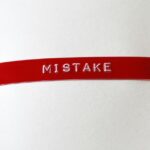What Are the Fundamentals for Confidentiality During a Recruitment Process?
Confidentiality is one of the most important—but often overlooked—elements of any successful recruitment process. Whether you’re hiring for a senior leadership role, planning to restructure your team, or replacing a challenging hire, discretion can make or break not only the outcome of the recruitment process, but also your team culture, brand reputation and future performance.
At The HR Recruiters, we specialise in recruitment for HR roles across the UK. We’re often asked by our clients:“How do we make sure this hiring process stays confidential?”So, we’re going to break this down for you, covering everything you need to know to protect confidentiality at each stage of your recruitment journey.
Why Does Confidentiality in Recruitment Matter?
Let’s start with the why. There are several reasons why confidentiality is crucial in recruitment:
Protecting existing employees – If you’re recruiting to replace someone in the current team, they should hear about it through you, not a rumour mill.
Safeguarding business strategy – Hiring for a new role can signal change, expansion, or future priorities. You don’t want this leaking out before you’re ready.
Avoiding candidate panic – If word gets out too early, it could trigger internal movement or even resignations.
Reputation management – Discretion shows professionalism. It helps you build trust with candidates and maintain your reputation as a fair and respectful employer.
Now let’s look at how to make that confidentiality a reality.
1. Define What Confidential Means for You
The first step is deciding what exactly needs to stay confidential.
Is it:
The fact that you’re hiring?
The specific role or job title?
The name of the person being replaced?
The reasons behind the vacancy?
The salary range?
Understanding this up front helps everyone involved manage communication correctly—from internal teams to recruitment partners.
At The HR Recruiters, we always begin our process with a confidential briefing call to agree the parameters and risk points before we go to market.
2. Choose the Right Recruitment Partner
If you’re planning a confidential hire, don’t just work with any recruiter. Choose one who understands the unique requirements of discretion in high-stakes or sensitive searches.
A specialist recruiter knows how to:
Advertise a role discreetly or off-market
Vet candidates before sharing key details
Protect your identity until the right point in the process
Act as a buffer between you and your market
Ask your recruiter how they’ve handled confidential roles in the past. If they can’t talk through a clear process for keeping your search under wraps, they’re not the right fit.
3. Limit Internal Knowledge
When confidentiality is important, less is more. That means keeping the number of people who know about the recruitment as small as possible—especially in the early stages.
Some tips:
Use need-to-know principles internally.
Avoid sharing information in team meetings, Slack channels, or email threads.
If the recruitment involves replacing a current employee, take extra care to protect their dignity and privacy.
The more people involved, the higher the risk of leaks—so keep your circle tight.
4. Be Smart About Job Advertising
One of the most common mistakes businesses make during a confidential hire is accidentally revealing too much in the job advert. Even if the company name isn’t included, the language used can sometimes give it away.
If you’re advertising directly:
Avoid naming the company or location if it would make it obvious
Keep the role description general in early-stage ads
Don’t use phrasing that hints at internal changes (“We’re replacing a longstanding team member…”)
Better still, use a trusted recruiter to go off-market. At The HR Recruiters, we often fill senior HR roles without any public advertising at all—thanks to our network and referral approach.
5. Use NDAs and Discreet Communication
If you’re sharing sensitive information with candidates or other stakeholders, put protections in place.
Use Non-Disclosure Agreements (NDAs) for high-level or strategic hires.
Ask candidates not to discuss the opportunity with others at early stages.
Use direct, one-to-one communication channels instead of group emails or platforms.
Many candidates will respect confidentiality by default—but it’s still worth setting expectations explicitly, especially if the information is business-critical.
6. Time Your Internal Communications Carefully
Eventually, the time will come to share the news with your internal team. When and how you do this is just as important as what you say.
If you’re replacing a current employee:
Make sure they’re informed in person, with support and clarity about the next steps.
Avoid having others hear the news through recruitment activity.
If it’s a brand-new role:
Time the announcement after a successful hire has been made.
Frame the communication in a way that aligns with your broader strategy or goals.
You don’t want the rumour mill to get ahead of you, so plan your message and your timing carefully.
7. Be Honest with Candidates When the Time Is Right
Candidates are often curious when a role is confidential. It’s okay to be upfront about the fact that some details are being withheld at early stages. The key is to balance discretion with respect.
A good script sounds like:
“This is a confidential search, so we’re not disclosing the employer’s identity at this stage. Once we progress to interviews, we’ll be able to share more.”
Being vague about why it’s confidential is fine. But never mislead or manipulate the candidate it can backfire and damage your employer brand.
8. Work With a Trusted Shortlist, Not a Long List
Confidentiality is harder to manage when you have a huge pipeline of candidates. The more people you’re screening or interviewing, the more likely it is that someone will piece things together or talk.
That’s why it’s important to focus on quality over quantity.
At The HR Recruiters, we don’t send 10 or 15 CVs, we send 2 or 3 great ones. This tighter control means:
Fewer people involved
More trust in the process
Less chance of a confidentiality breach
Final Thought: Confidentiality = Respect
At the end of the day, confidentiality in recruitment is about more than just secrecy. It’s about respect:
For your existing team
For your candidates
For your business strategy
And for the person who may be leaving
Handled well, a confidential process can protect your brand and ensure a smooth, professional experience for everyone involved.
If you’re planning a sensitive or senior HR hire and need a recruitment partner who knows how to handle confidentiality with care, The HR Recruiters are here to help. We’ve built our entire reputation around placing brilliant HR people quietly, efficiently and respectfully.
Want to talk through a confidential hire? Get in touch with us today.





